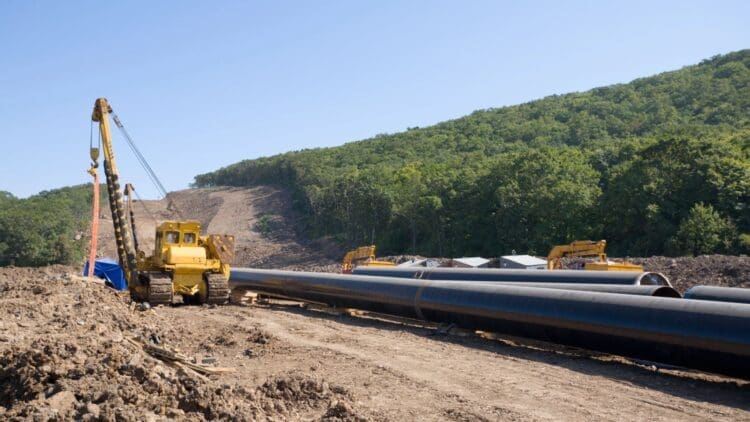Following the latest round of sanctions on Russia by the European Union as well as the United States, Moscow is turning its attention to the small group of nations still willing to do business with it. One such nation is the African stalwart that is the Republic of Congo. Congo and Russia have plans to start building a massive pipeline in the African nation known as the Pointe-Noire–Loutété–Maloukou-Tréchot pipeline by the end of the year. Yes, the name of a mouthful, but the impact of the project simply can not be understated.
Russia is aiming to create a sanctions-protected channel for petroleum product supplies
The latest round of sanctions on Russia has devastated the nation’s energy industry, as well as the global economy. From the first day when the EU imposed its 19th round of sanctions on Russia, the price of oil skyrocketed as suppliers and customers reacted to the decrease in energy supplies, which normally leads to an increase in prices.
In order not to see its energy sector completely disappear overnight, Russia is aiming to develop a sanctions-protected channel for petroleum product supplies. One such method to ensure its energy sector survives the new sanctions is through the cooperative relationship with the Democratic Republic of the Congo. The pair has agreed to terms on a new energy product pipeline that connects the largest cities in the Congolese nation.
The Pointe-Noire–Loutété–Maloukou-Tréchot pipeline is set for a Q4 2025 completion date
The project is being developed and constructed by a joint venture between the Congo and Zakneftegazstroy-Promety, a leader in pipeline construction in Russia. Government and business officials from the Congo and Russia have praised the progress made on-site and have noted that they expect the project to be rolled out by the end of the year, with commitments made to follow up on the timeline.
The deal was inked into reality in Moscow way back in 2024
The project was agreed upon by both parties in Moscow in 2024 and provides a stable and welcoming environment for the construction phase by the Russian pipeline operator, which is a far cry from what the rest of the world is hoping for. The new wave of sanctions on Russia and its vast array of energy companies has led some operators, such as Lukoil, to divest their holdings in foreign assets, devastating their stock prices in the process.
Zakneftegazstroy-Prometey LLC and the National Petroleum Company of the Congo will develop a joint project that enables Russia to receive the vast majority of the financial returns from the project, 90% to be exact, while Congo gets the 10% scraps. To implement the project successfully, the pair will develop a joint venture for constructing and operating the pipeline for 25 years.
With the new sanctions on Russian energy set to come into effect over the next two or three years, Russia is diversifying its energy portfolio and opting to do business with nations outside the purview of the EU or the United States. Congo has been ravaged by civil war for decades, and only recently began operations in its energy sector.
The end of the Russian dominance of the energy sector has been accelerated
The news of the Pointe-Noire–Loutété–Maloukou-Tréchot pipeline entering the construction phase in Q4 of this year must be giving some hope to Moscow. The unforgiving and volatile sanctions on Russia are only the first step in the EU’s plans to end Russia’s dominance of the international energy sector. The EU has plans to develop a joint purchasing platform for non-Russian energy supplies; this move points to the fact that Moscow is facing a precarious end to its energy sector, although the Congolese pipeline has given it some hope.






